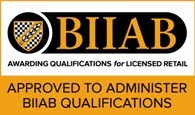Title – Cocaine deaths jump by a fifth
Source – Metro
Date – 27th August 2009
This should be a wake-up call for all those people who kid themselves that Cocaine is not dangerous or that they can control the addictive nature of this drug.
That the official figures put the number of deaths attributed to cocaine at 235, is sure to underestimate the number of deaths where cocaine use was a contributory factor.
This death toll also provides us with a stark reminder of the destructive nature of cocaine, both on long term health and social degradation.
Addiction in all it’s form and to all the various addictive substances has a profoundly destructive effect on communities, businesses and organisations, one which is perpetuated by misconceptions spread by dealers and users alike.
Drug Awareness provides guidance for those who work in environments where drug use is a contributory factor to lower productivity or
Conflict in the Workplace or where drug use and drug dealing threatens the business / organisation itself.Source – Metro
Date – 27th August 2009
This should be a wake-up call for all those people who kid themselves that Cocaine is not dangerous or that they can control the addictive nature of this drug.
That the official figures put the number of deaths attributed to cocaine at 235, is sure to underestimate the number of deaths where cocaine use was a contributory factor.
This death toll also provides us with a stark reminder of the destructive nature of cocaine, both on long term health and social degradation.
Addiction in all it’s form and to all the various addictive substances has a profoundly destructive effect on communities, businesses and organisations, one which is perpetuated by misconceptions spread by dealers and users alike.
Drug Awareness provides guidance for those who work in environments where drug use is a contributory factor to lower productivity or
At Beyond The Blue we run a number of courses for those working in the Licensed Retail Sector including The National Certificate for Licensees Drug Awareness (NCLDA). For other sectors our bespoke Drug Awareness (DA) courses, which examine illegal drugs, their effects and the drug litter synonymous with their use, are specifically designed to reflect the nature of our clients working environment. Our Conflict Management and Resolution (CMR) course complements these courses to help employees deal with Workplace Violence and drug related behaviour.
Please visit our website at www.btbl.co.uk. For a complete list of Blog entries visit our National Press Archive page.
For more information on any of our services, please call us on 0845 602 55 95 or Contact Us.








